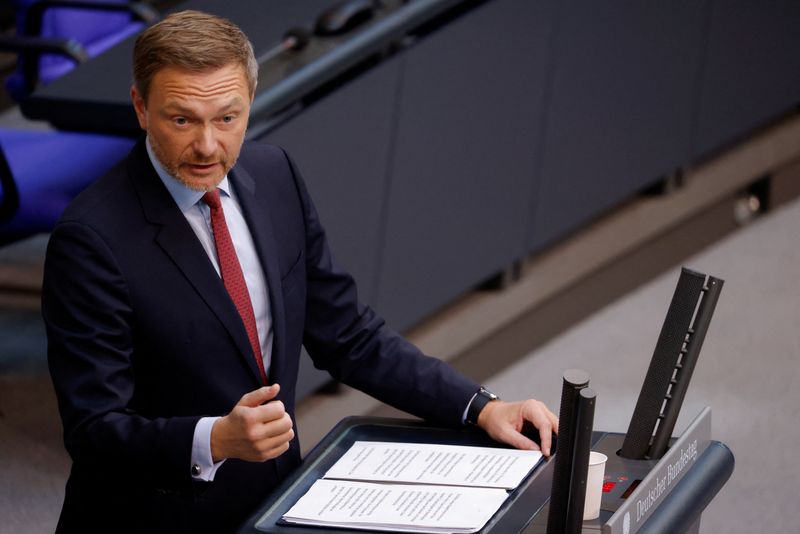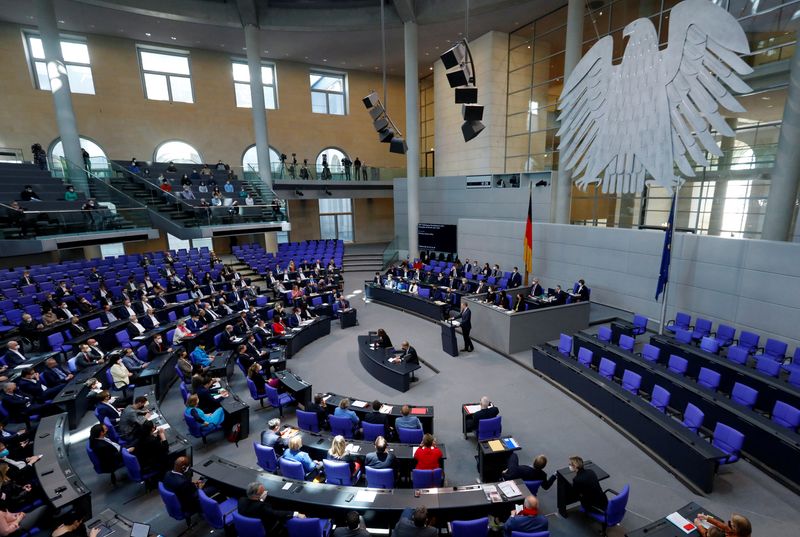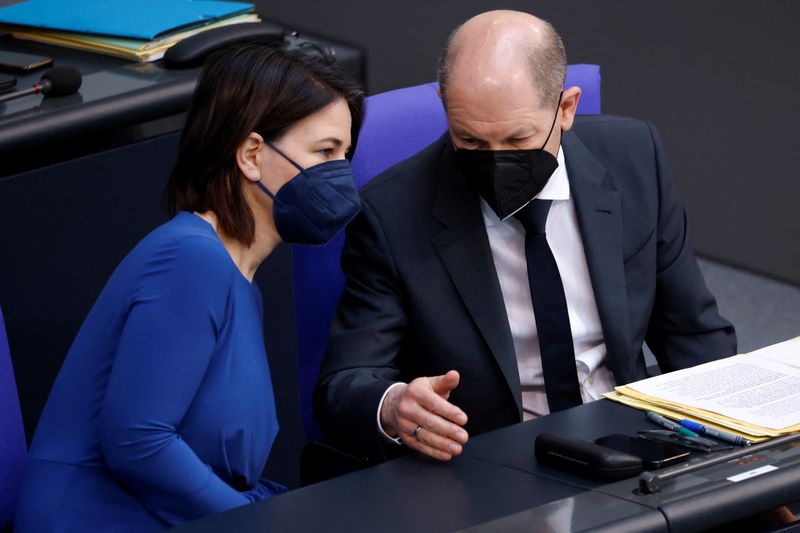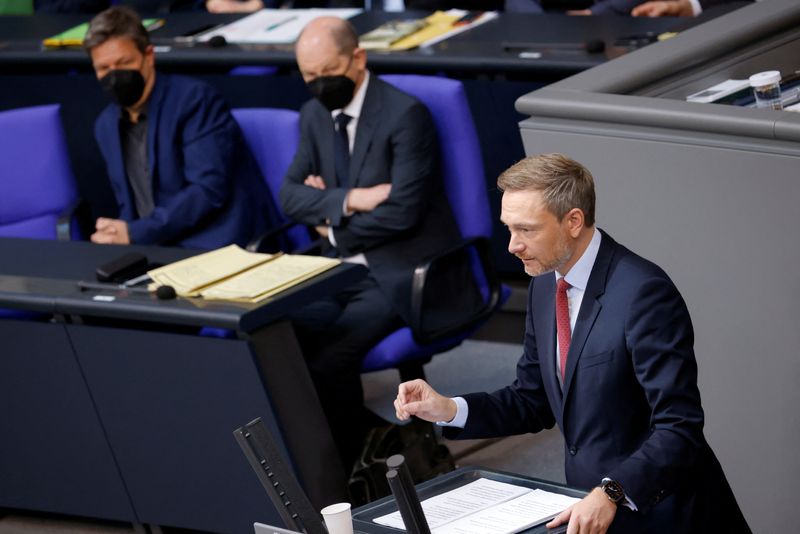BERLIN (Reuters) – The German government will tailor its public spending plans to avoid stagflation in Europe’s biggest economy and keep at bay the risk of sliding into a cycle of rising prices and anemic growth, Finance Minister Christian Lindner said on Tuesday.
“The goal of the federal government is to support growth in Germany and mitigate the impact of inflationary risks,” Lindner said in a speech at the Bundestag lower house.
“A development in the direction of stagflation would be a threat. People and the economy can rely on the government to apply its fiscal tools to avoid stagflation,” he added in a speech to present his 2022 budget plans.
The government would deploy measures to provide broad economic relief for the German public and could use a variety of tools, Lindner said, adding that a supplementary budget would address spending areas impacted by the war in Ukraine.
The 2022 budget would mark a step towards a normalisation of fiscal policy after the coronavirus crisis, he said.
“The American Federal Reserve has already raised its key interest rates, the European Central Bank has announced a tightening of its monetary policy. This underlines the fact that the ECB sees the risks of inflation and is preparing for them.”
“This shows that we cannot rely on the central bank to organise growth and the state to finance it permanently with low interest rates,” he said.
“We have to make self-sustaining growth possible in this country and at the same time lead the state out of debt.”
(Reporting by Joseph Nasr and Paul Carrel; Editing by Madeline Chambers)


























